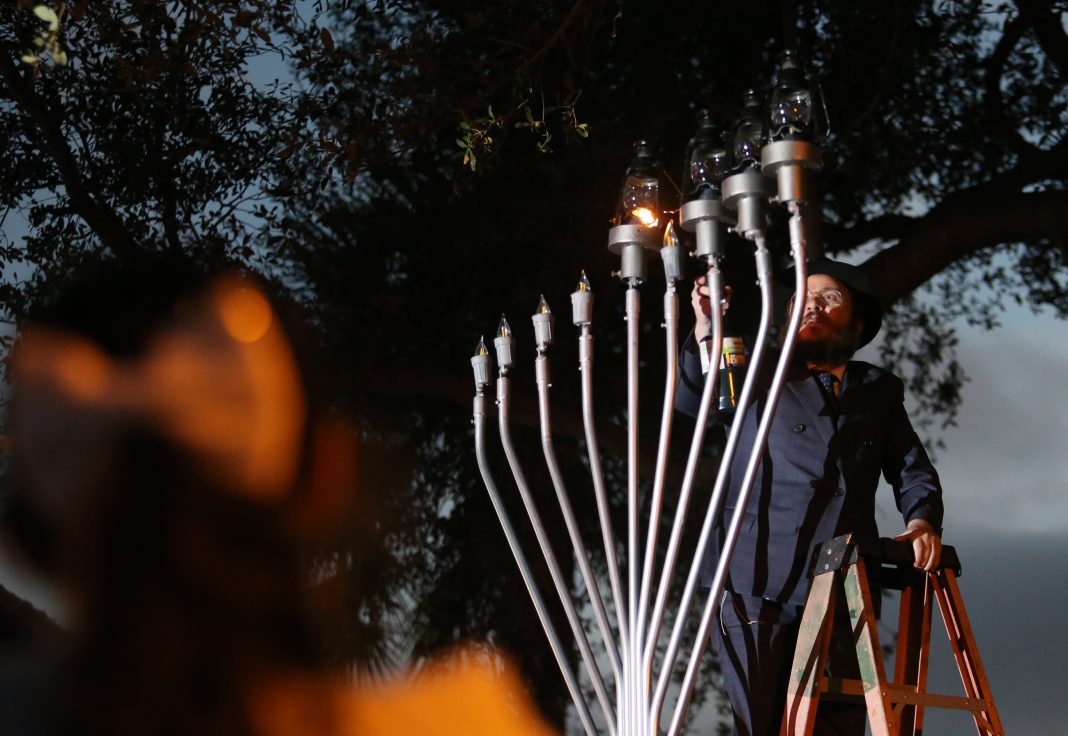McALLEN — Just after 5:45 p.m. Tuesday, Dec. 20, Rabbi Asher Hecht attempted to gather the crowd toward a set of bleachers near a makeshift stage by the gazebo here at the center of Archer Park, but he was forced to contend with the piercing horn and crescendoing clatter of steel wheels as a freight train slowly made its way along the tracks a few yards from the park.
“The train is ushering us into the beginning of the ceremony, here,” Hecht quipped, as the sun slowly set, taking with it the last remnants of warmth as colder temperatures enveloped the bundled-up crowd of spectators.
As the rabbi spoke, Israelí singer Yoel Sharabi tuned a guitar in preparation for the Chassidic music he was about to perform.
“We’re just waiting for the train to pass,” he said, still trying to move a few stragglers toward the stage.
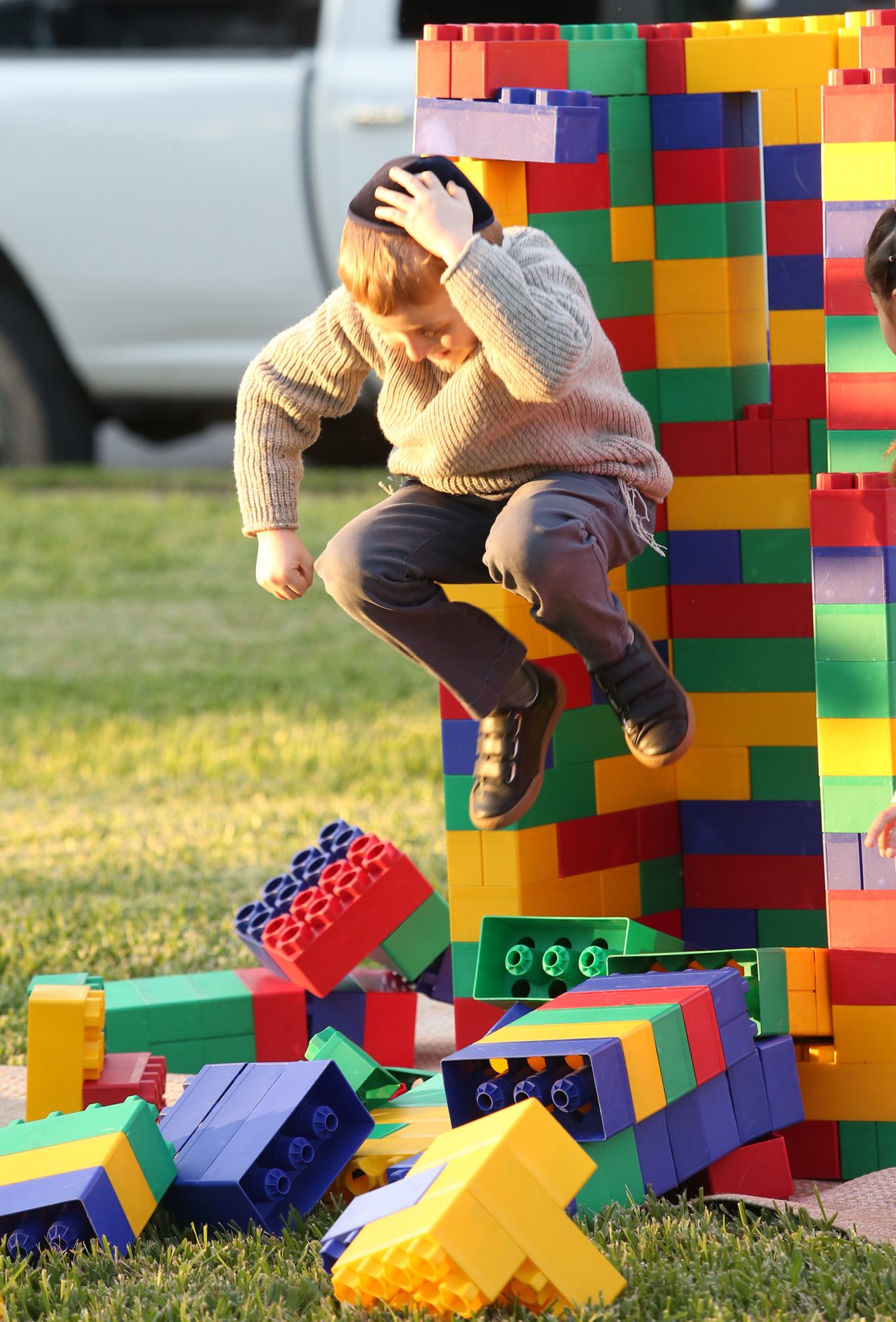
As the wail of the train faded in the distance, Hecht welcomed those in attendance to the 12th annual Menorah Lighting Ceremony and concert in McAllen.
“It’s so nice to see everyone, and I knew that everyone coming here this evening would know that the best fireplace tonight is right here by the menorah,” Hecht said.
Hanukkah is the eight-day Jewish festival celebrating the miraculous Maccabean victory over the much larger Syrian-Greek army over 2,200 years ago and the rededication of the Second Temple of Jerusalem.
The holiday is celebrated with a candle being lit each night, beginning Sunday, Dec. 18, through Monday.
McAllen City Commissioner Pepe Cabeza de Vaca was on-hand for Tuesday’s celebration to commemorate the third night of Hanukkah.
“It’s a little bit cold, but these kinds of festivities are what warms us — warms our hearts and our communities,” Cabeza de Vaca said, addressing the shivering crowd moments before climbing a ladder with a small propane torch to light the nearly 20-foot tall menorah.
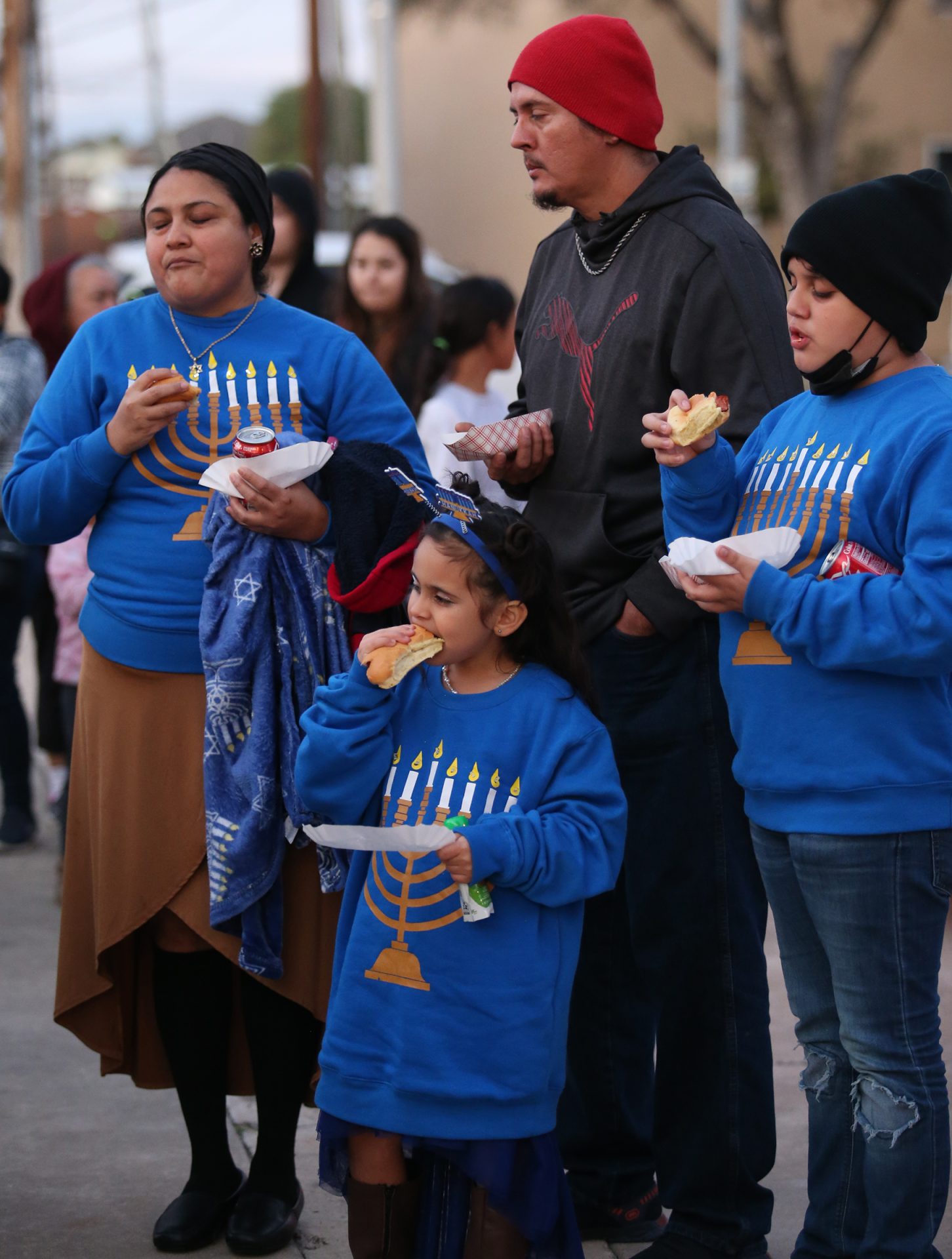
Hecht then led the crowd in a blessing for the Hanukkah menorah before Sharabi took the stage and began his set, inviting the crowd to sing and clap along.
“It’s a Jewish holiday that we share with the larger community outside of our own Jewish community because we feel that it has a message that is universal, and that is a message of freedom,” Hecht explained. “Here we are, peoples of the world, and often we have certain interests to live our lives certain ways and serve God in certain ways. Sometimes we could be targeted for that and persecuted for that.”
This year’s celebration arrived on the heels of the national controversy surrounding antisemitic comments made by rapper Ye, formerly known as Kanye West.
Hecht, who serves his congregation at Chabad RGV, said that despite the recent headlines, the hateful rhetoric is a familiar occurrence for people of the Jewish community.
“Antisemitism is not something new to the Jewish people,” Hecht said before Tuesday’s ceremony. “Unfortunately, part of our existence is that we deal with hatred. It’s very unfortunate because people choose to be evil over being good.”
“I think there’s two key ways to deal with hate, and it’s the same way you deal with evil,” the rabbi continued. “First of all we have to do everything we can as human beings to protect ourselves, to secure ourselves. Society has the obligation, if they stand on the side of righteousness, to make sure that they secure their citizens. Thank God that we live in a great country, America. Thank God that we live in a great city, McAllen, Texas.”
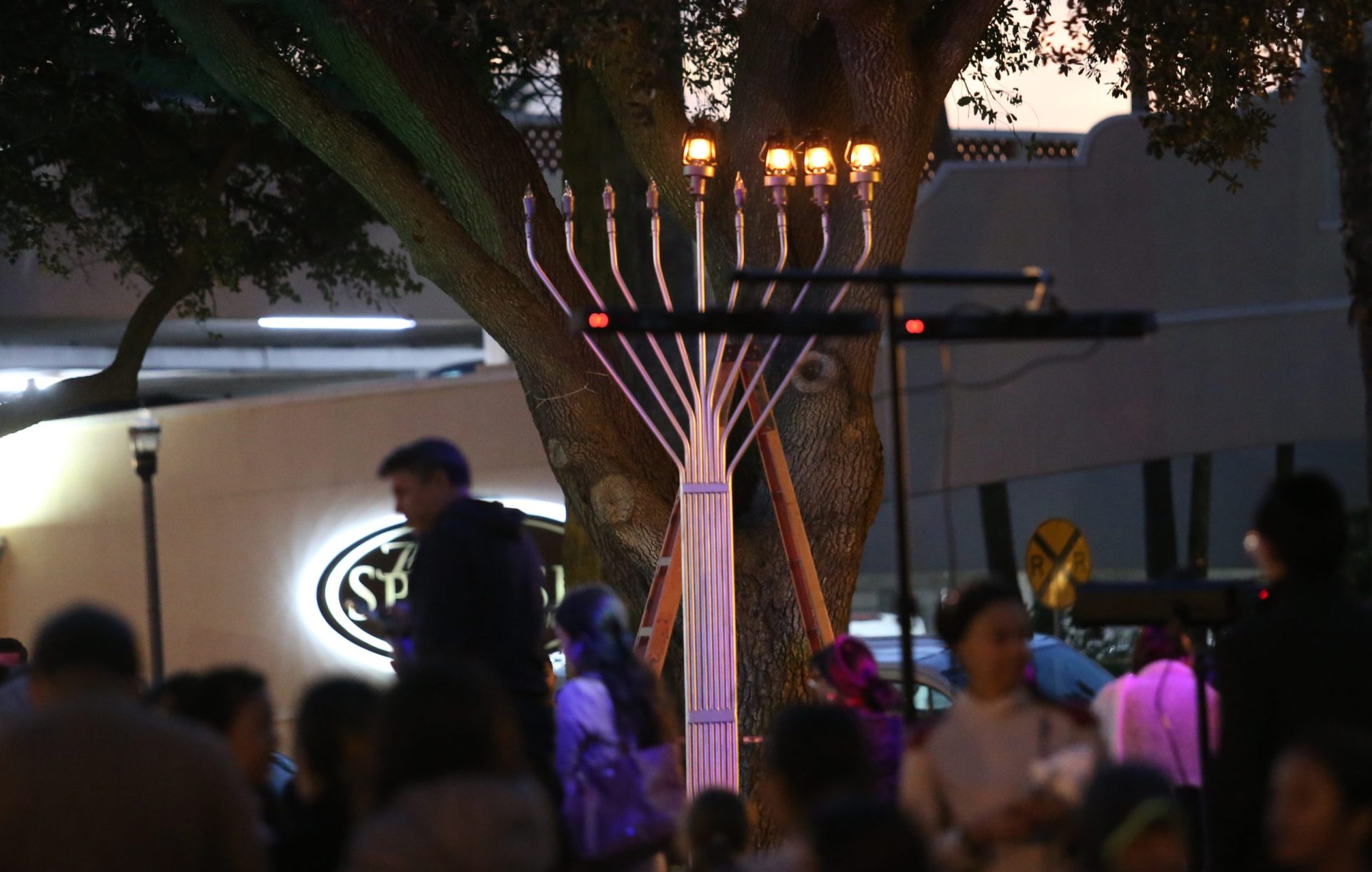
Hecht has lived in the Rio Grande Valley for about 18 years, 12 of which have been in McAllen. He said that throughout his time here, he has not felt any more in danger than the other places he’s lived in throughout his life.
“Hate exists everywhere, unfortunately,” he said. “I can’t say that I feel any more in danger here than anywhere else. We take our precautions to make sure that we’re safe, but I don’t think there’s any particular element over here that would indicate that there’s something more to be concerned about. I grew up in New York. It’s surely not worse than New York.”
The rabbi recalled the Valley’s Jewish history, dating back to before the American Civil War, and those who continue to play a crucial role in the fabric of South Texas society.
“When I met with our county judge when he was mayor, Richard Cortez, one of the first things he told me, he said, ‘Rabbi, we have to recognize that the first merchants of McAllen, Texas were Jews,’” Hecht recalled of his conversation with the Hidalgo County judge.
“We love the Rio Grande Valley. We feel that it’s a good place to live. We’ll continue to live here and be a part of life here,” he continued. “Tonight represents that. It’s all about bringing people from all faiths. This is a public event. We don’t charge. It’s all for the purpose of us sort of saying, ‘Come meet the Jewish community. Talk to us. Let’s have a conversation. See what our interests are. See that we love the same things that you love.’
Stanley Jacobson was born in Boston, Massachusetts, but he grew up in New York before moving to the Valley 42 years ago. He said that he was raised in the Jewish faith, but he did not attend synagogue for many years until a fateful day seven years ago, when he met Hecht in a Lowe’s parking lot and became inspired.
“I never hid the fact that I was Jewish, but for 50-plus years I didn’t go to a synagogue,” Jacobson said. “It wasn’t like a protest or anything. It’s just — there’s other diversions. It just didn’t fit into my regime.”
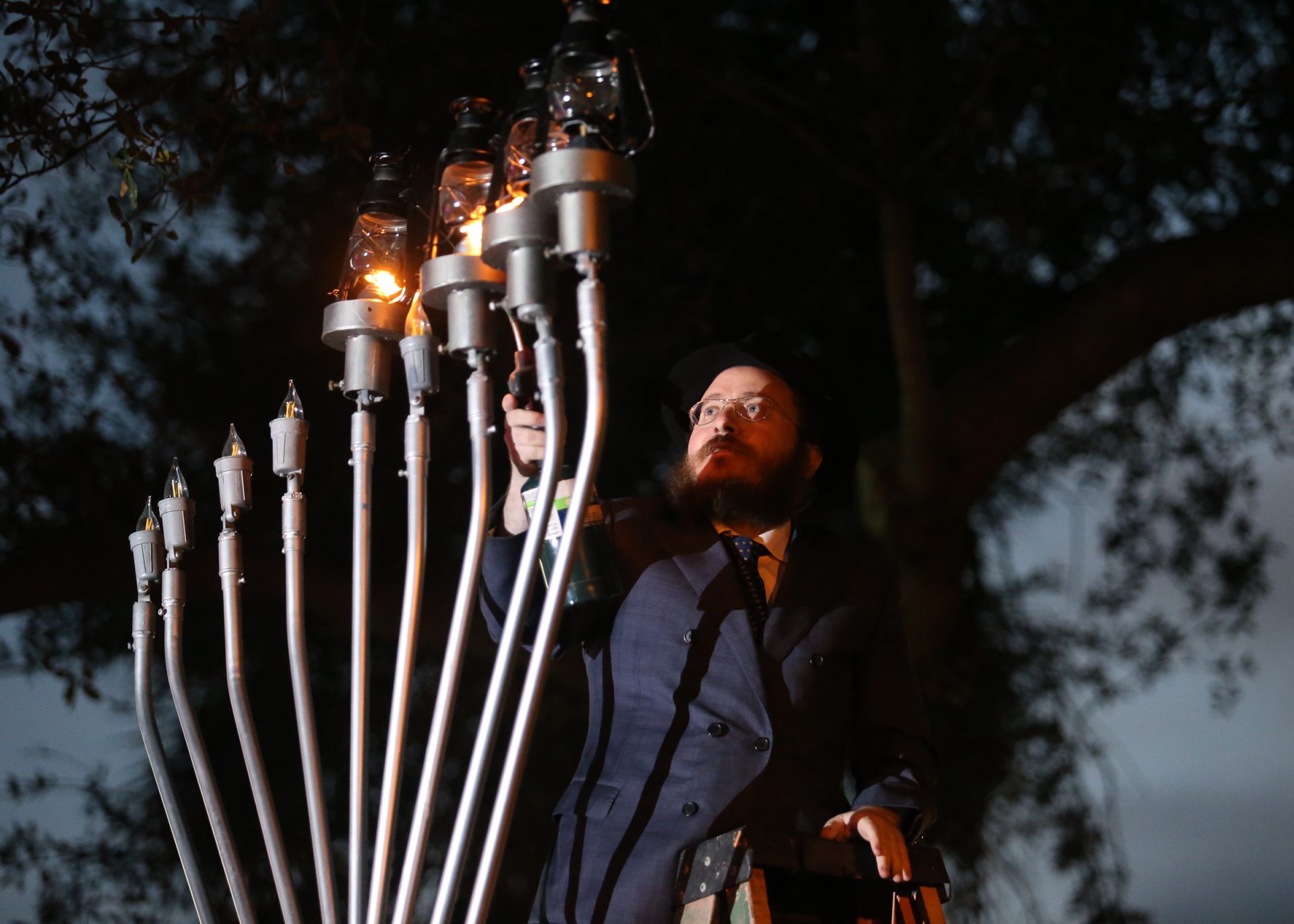
Jacobson, who is also known by his Hebrew name Shlomo, said that despite the comments made by West and recent upsurge in antisemitism, he doesn’t feel like he’s in any danger.
“The probability of anything happening is still very thin,” he said. “Before (West) said that, I had no use for the guy. Is he talented? Is he educated? I think he’s disturbed. He’s probably harmless, but he could influence others who probably idolize the way he lives. We have security at the synagogue. We take precautions. Rabbi has put a lot more emphasis on securing the campus.”
He said that he is proud of his Jewish heritage, a fact about himself that he gladly shares with strangers through acts of kindness.
“I don’t want to stand out as somebody different,” he said. “We have a policy, in Hebrew it’s called chesed which means kindness. It’s something that’s in our blood to be kind and generous. I think I am.”
“Life on this earth is short, and you have an ability to do good or the opposite of good,” the rabbi said. “Choose to do good.”

